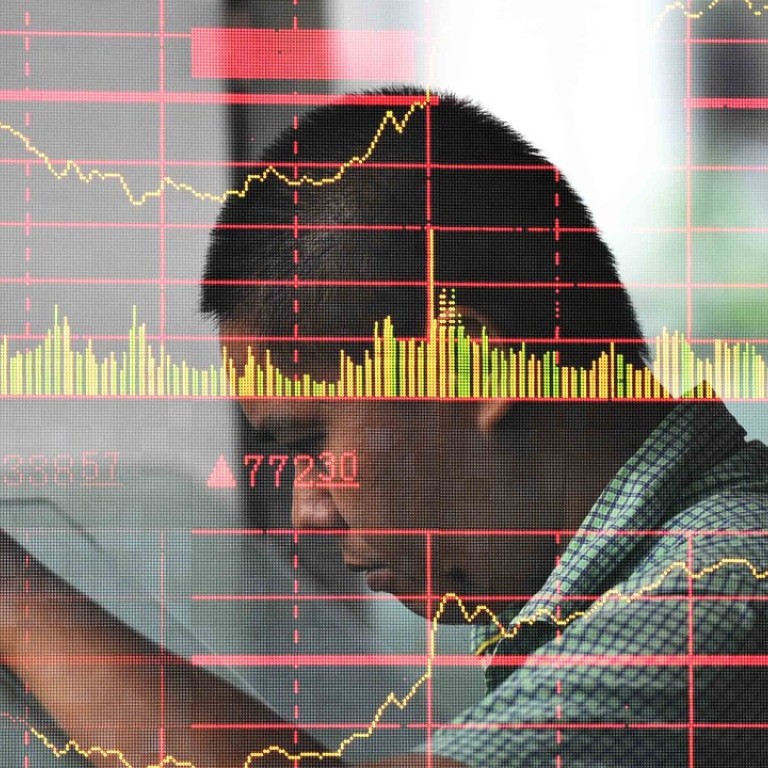
ChiNext sinks further into the doldrums amid lacklustre company earnings
The board that was meant to be China’s answer to the Nasdaq has never delivered on its early promise. Now things are going from bad to worse
It was meant to be China’s answer to the US’ Nasdaq exchange, brimming with ambitious technology start-ups vying to become the next Microsoft or Netflix.
But unfortunately, the mainland’s tech-heavy ChiNext market is yet to fulfil its early promise and has been losing its lustre with investors amid a slump in its constituents’ earnings.
Eight of the 10 largest companies trading on the board at the Shenzhen Stock Exchange have warned of either profit declines or losses during the first half of this year, pouring cold water on investors’ hopes of discovering a future gold mine.
The second board – China’s own Nasdaq – will eventually be abandoned by investors, with not a single established tech behemoth coming into existence
Guangdong Wens Foodstuffs Group, the largest ChiNext-listed firm by capitalisation, said in a filing to the exchange that its first-half earnings may have fallen by as much as 78 per cent to 1.6 billion yuan (US$235 million), from 7.2 billion yuan in the same period a year earlier.
As of Tuesday, its shares had sunk 16.8 per cent to 19.88 yuan in a losing streak of eight straight trading sessions. That made the company’s total market capitalisation 103.8 billion yuan on Tuesday.
Leshi Internet Information and Technology, a video-streaming service provider under billionaire founder Jia Yueting’s debt-ridden LeEco group of companies, warned investors of potential losses of up to 642 million yuan between January and June. It’s the first time the firm has reported interim earnings in red ink since its trading debut in August 2010.
Trading of Leshi’s shares is currently suspended. It was valued at 61.2 billion yuan on April 14, the last trading day before the suspension came into effect.
Leshi was once touted as one of the most promising start-up firms on the ChiNext amid a rising tide of enthusiasm for online video content.
“Investors have been feeling disappointed about the lacklustre corporate performance,” said Liu Qiaoyu, a Huatai Securities analyst. “Some of them started to realise the valuations are frothy.”

Last weekend, top state leaders told the National Financial Work Conference that direct financing would still be prioritised in bolstering the growth of technology start-ups, a move likely to usher in a flood of initial public offerings on the ChiNext market.
However, investors are expected to react in a lukewarm manner toward new shares hitting the market, in the absence of any convincing growth potential, analysts said.
The mainland’s top technology firms, which include Baidu, Alibaba Group and Tencent, are listed abroad.
Beijing launched the ChiNext market to much fanfare in October 2009 after nearly a decade of preparation.
Regulators and investors at the time allowed their imaginations to run away from them, envisioning a thriving second board on par with the Nasdaq board in the United States.
Optimistic economists and investors, citing the country’s staggering economic scale and the government’s determination to move Chinese-made goods up the value chain, believed several technology giants would be created after raising much-needed growth capital on the ChiNext exchange to fund their expansion.
Technology companies are subject to strict profit requirements if they choose to conduct IPOs on the mainland’s second board. They face a higher listing threshold than those in overseas markets where loss-makers are allowed to float new shares.
At the time the ChiNext was launched, many analysts welcomed the stringent profit requirements, believing they would help ensure only good quality firms gained approval to list. However, they have largely been proved wrong as profit and loss prior to IPO has not always been a decisive factor in a company’s growth potential.
Professional services firm PwC said mainland regulators, instead of focusing purely on financial performance when assessing IPO applications, need to develop a better understanding of the nature and operating structures of technology start-ups.
Gao Jianbin, a PwC partner, said the regulators still do not understand some of the new business models adopted by internet firms. For example, the number of registered users on an online platform might signal huge future profit potential even if the company at that point is still loss-making.
Shenwan Hongyuan Securities said in a research report that even the listed firms can’t rely on strong organic growth to improve earnings but can use the funds they raised from the IPO or refinancing to seek good acquisition targets so as to shore up their balance sheets.
To date, more than 650 companies are traded on the ChiNext market.
Before a stock market rout starting in mid-2015, small-cap stocks on the ChiNext were the darlings of China’s retail equity investors.
They darted in and out of the small stocks to pursue short-term gains regardless of the lofty valuations.
“As blue-chip stocks stay flat due to worries about a slowing economy, technology start-ups are always the most favoured investment targets of speculators,” said Shen Ye, a Shanghai-based hedge fund manager. “But the second board – China’s own Nasdaq – will eventually be abandoned by investors, with not a single established tech behemoth coming into existence.”
On Tuesday, the ChiNext-listed firms traded at more than 46 times their 2016 earnings, compared to the average price-to-earnings multiple of 17 on the Shanghai Stock Exchange.

